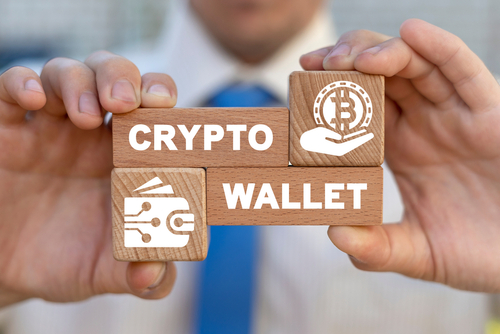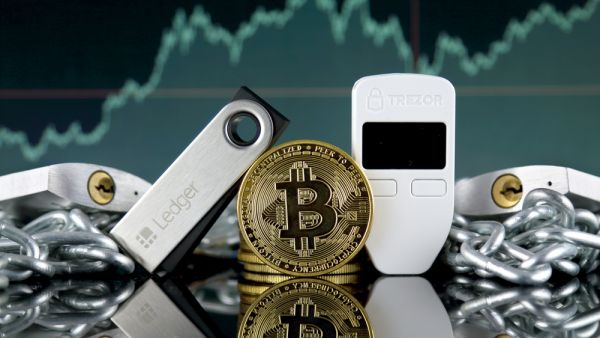Ever since bitcoin and other cryptocurrencies gained global exposure and recognition, the popularity of this non-traditional investment has skyrocketed. The unpredictable crypto market is renowned for three things: extreme volatility, Ponzi schemes, and hacks. That is why you should be so cautious about where you store your money.
So if you’re passionate about not losing your hard-earned money to fraudsters, scammers, and thieves, here are 4 tips to keep your crypto wallet stored safely:

4 tips to keep your crypto wallet safe:
- Use a Hardware Cold Wallet and Maintain Multiple Wallets
The first thing to keep in mind is that crypto wallets are classed according to where they store your crypto wallet's private key (which is essentially your very own password to your wallet); if it's stored online, it's referred to as a "hot" wallet; if it's stored offline, it's referred to as a "cold" wallet.
Cold wallets, of course, provide the utmost level of security for your cryptocurrency, thus it’s the best to use for storing large amounts of crypto. If you’re a daily trader, we advise you to keep a separate hot wallet for day-to-day transactions. When using this online wallet or any service that asks you to enter your private key, double-check that the URL address is authentic because scammers usually clone the entire websites of wallets or use almost identical URL addresses to the real one.
- Use Secure Internet and Secure Your Personal Device
The majority of public networks are insecure and vulnerable. So if you have a bitcoin wallet on your laptop, we recommend using the hotspot on your phone instead, as it’s best to avoid connecting to public networks at all costs.
And since you’re using your personal laptop to store crypto, make sure your computer has up-to-date and trustworthy antivirus software installed. It's also crucial to scan it thoroughly before installing your wallet on the device.
- Change Your Password Regularly
If you are using an online wallet, we advise you to choose your password carefully. The biggest downfall for rookies is choosing passwords that are obvious and include phone numbers, birth dates, names, and favorite movies. Rather, we recommend you choose an alphanumeric combination that only you recognize and understand. Statistics say that more than half of people use the same password for several accounts, which makes it easy to hack if Make sure your wallet password is one-of-a-kind. The most important thing is to keep these passwords and private keys for your eyes only.
- Use two-factor authentication
Two-factor authentication, often known as 2FA, is when you safeguard your account with two factors or locks, adding an extra layer of security. Luckily, two-factor authentication is available in most online wallets, and you should always use this low-cost, high-impact security measure which can divided into three groups in this context:
Knowledge of the users (e.g., password)
Something that belongs to the user (e.g., phone)
Biometric characteristics (e.g., fingerprint)
Your account must require at least two locks before providing access to be adequately protected by 2FA.











